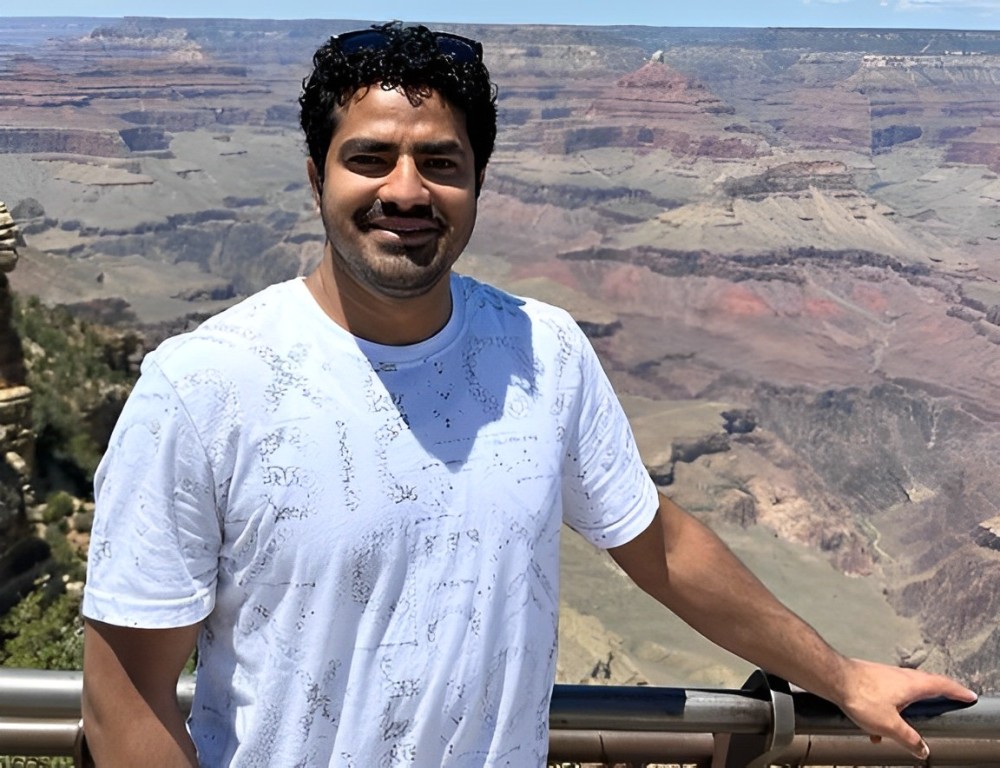At almost every level, Kausar A Khawaja shifted his educational institutions and now he is pursuing his PhD at USA’s Arizona University. Mujtaba Hussain talks to the physics scholar to understand his research and education
Kausar Ali Khawaja is currently pursuing his PhD in Material Sciences and Engineering from the Arizona State University (ASU) in the USA. A resident of Magam (Budgam), his education has been a great learning experience even beyond the classrooms.
After his schooling at the Khanams Public School Lawaypora, in Srinagar, Kausar he moved to Delhi and completed his secondary education at Colonel Satsangi’s Kiran Memorial Public School (CSKM). Later he did his Bachelor’s from Aligarh Muslim University (AMU) in Physics. For the master’s programme in electronics, he got admission at Jamia Millia Islamia, Delhi but he decided to join the Dong-A University of South Korea for continuing studies in Physics.
“During my school days in Srinagar, I always wanted to move out for studies as I had developed a fondness for IITs, Jamia Millia, Delhi University”, Kausar said. He pursued graduation after he could not pass the engineering entrance examination. “I always had an inclination toward research-based learning and the practicality of how things work. So, I started looking for applied physics degrees and ended up joining the Master’s in Electronics programme at Jamia.”
Jamia’s academic arrangements purely theoretical did not impress Kausar. He made efforts and finally got admission in Physics in a South Korean University.
At Dong-A University, Kausar worked as a Research Assistant while pursuing his Master’s degree. He worked on Perovskite Solar cells, in specific to the development of charge transport materials to enhance the performance as well as stability of the battery. With a master’s degree in hand, he started looking for a higher-ranked university for a PhD. He actually secured admission to the Ulsan National Institute of Science and Technology (UNIST), South Korea. Soon, he discovered an “unhealthy atmosphere” and decided to drop out. “It was hard to quit a fully funded programme, but the atmosphere had the potential of impacting my mental health,” he said.
Kausar started looking for alternative campuses and finally got an opportunity when Arizona State University (ASU) accepted him under the Fulton Fellowship programme. “I believe the research experience that I gained during my Master’s played a crucial role in securing my admission at ASU,” he said.
Currently, he is working on perovskite solar cells. He is part of the team that is conducting extensive research on the cell’s stability and scalability. Perovskite solar cells are a promising photovoltaic technology due to their superior electronic properties and, most importantly, low fabrication cost. Unlike silicon-based solar cells currently available in the market, which have high fabrication costs, perovskite solar cells offer a viable alternative for large-scale implementation, replacing non-renewable sources of energy. However, perovskite materials suffer from drawbacks such as instability in the presence of air and moisture. “Our research is focused on developing moisture and air-resistant perovskite materials to address this issue,” Kausar said.
For securing admission for Master’s and PhD, Kausar proposed there are two ways to hunt for any specific campus. “One is to approach a particular Professor directly and the other way is to apply directly to universities,” Kusar said. “I personally followed the first path as my mentors and acquaintances guided me.”
Kausar said offshore admissions are relatively easy at high-quality universities in Asia Pacific countries like Korea, China, Taiwan, and Japan, as compared to European and American universities. “Professors in Asian Universities most often look at the compassion and interest of a student during an interview rather than mere academic performance,” Kusar said. “These Universities also accept international students at relatively lower merit.” He said it is slightly easier to move to Europe and the USA from these universities.

Classrooms and mentors apart, travel is a great education. From Kashmir, Kausar moved to Aligarh to Delhi to South Korea and finally to the USA. “The journey was exciting as I saw the variability in the education system at all places,” Kusar said. “The education system in South Korea is much more innovative and advanced. In India, the universities do not pay much heed to the project work during Bachelor’s and early Master’s programme but in South Korea, one can do project and research work along with Bachelor’s and throughout the Master’s course.”
Talking about his future endeavours, Kausar said that he wanted to return and contribute to the field of research and development and work for the people of his community. The education system in South Korea, as well as the USA, is hugely advanced and innovative and that of Kashmir is mostly focused on a job. “More students must move out for studies and take the good practices home,” Kausar said.















